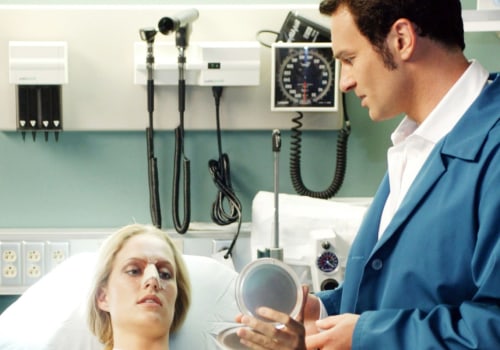Plastic surgery (unless medically necessary) The IRS says you can deduct the cost of plastic surgery if it is needed to ameliorate or correct a deformity resulting from a congenital anomaly, injury sustained in an accident, trauma or disfiguring illness. Technically, cosmetic surgery falls under the category of personal appearance expenses, although you live in a somewhat gray area. This is because permanent modification of your body is difficult to classify as just for work, unlike a special costume, you can't “take it off” when you turn off the starting clock. If you itemize your deductions for a tax year on Schedule A (Form 1040), Itemized Deductions, you may be able to deduct the expenses you paid that year for medical and dental care for yourself, your spouse, and your dependents.
You can deduct only the amount of your total medical expenses that exceed 7.5 per cent of your adjusted gross earnings. You calculate the amount you are allowed to deduct on Schedule A (Form 1040). You may be surprised to learn that cosmetic surgery, in some cases, is an IRS approved tax deduction. Costs related to maintaining and changing your personal appearance are only tax-deductible under certain circumstances.
You probably already know that charitable deductions are tax-deductible. But what about the cost of caring for your pet? Or your son's clarinet classes? In some cases, the IRS has allowed taxpayers to deduct unusual expenses on their tax returns. For example, these costs may be a qualified medical expense or are an ordinary and necessary business expense of an entrepreneur. That means it might be more difficult for filers to claim out of the ordinary itemized deductions on their returns.
Generally, you can't collect a tax break for cosmetic surgery. The Tax Court allowed an exception in the case of Cynthia S. Hess, then exotic dancer who was self-employed in Fort Wayne, Indiana. She tried to get a depreciation tax relief on the implants, declaring them a deductible business expense.
The IRS initially blocked the deduction, stating that the implants were a personal cost. However, the Tax Court found that they were a business expense and ruled in favor of Hess. In 1990, the Tax Court ruled in favor of John and Joana French, who tried to cancel their 1984 taxes on a private plane they used to search their rental condo. The French were headquartered in San Jose, California, and their condo was in Mammoth Lakes, California.
The two had the option of driving more than six hours or taking the only commercial flight available to take care of their property. The IRS had argued that the family enjoyed flying to Mammoth Lakes and that they would ski and swim during their visits, so the trips were actually vacations. On the other side of the spectrum, if you have a service animal or guide dog, you can deduct the cost of buying, training and maintaining it. This would count as a medical expense.
Lastly, if your pet becomes an internet sensation, you may be able to deduct related costs as business expenses, Greene-Lewis said. The IRS has a nine-part test to help you make the determination, addressing the time and effort spent making your business profitable and whether you maintain accurate books and records. The same applies to weight-loss aids that your doctor prescribes to treat a particular disease. May be deductible, but only to the extent that it is not covered by insurance.
In 1962, the IRS added a provision allowing a tax deduction for clarinet classes based on an orthodontist's recommendation that the woodwind instrument could help correct a child's overbite. Do you have any confidential news? We want to hear from you. Get this delivered to your inbox and learn more about our products and services. IRS rules on cosmetic surgery are clear.
Medical expenses you incur for unnecessary cosmetic surgery are not deductible. The IRS allows you to pay off medical expenses related to procedures that cure a condition or illness, treat or restore your body, or improve your overall health. For example, the IRS would allow you to deduct the cost of breast reconstruction surgery after a mastectomy because the procedure restores the body to its pre-cancer state. To be deductible, an expense must be considered ordinary within the industry or profession (ie,.
Suppose that cosmetic surgery is considered ordinary and necessary and therefore deductible. In those circumstances, the person or entity that paid for it would obtain the deduction. If the producer paid it, it would get the deduction. But the surgery must be ordinary and necessary for the recipient of the surgery; otherwise, it could be taxable compensation for the recipient of the surgery.
If it is ordinary and necessary for the actor and paid by the actor, the actor would get the deduction. Now, what about cosmetic plastic surgery? According to the IRS, “you can't include in your medical expenses the amount you pay for unnecessary cosmetic surgery. “Examples that Publication 502 disapproves of include “" facelifts "”, hair transplants, hair removal (electrolysis) and liposuction.”. However, the medical expenses of cosmetic surgery overlook with the IRS if “it is necessary to improve a deformity arising from or directly related to, a congenital anomaly, a personal injury resulting from an accident or trauma, or a disfiguring illness.
With all these factors, it was difficult for the IRS to argue that Hess's surgery was motivated by anything other than success at work and the tax court judge approved the deduction and categorized her breast implants as stage props. As W2 and 1099 arrive, you may be looking for ways to maximize your refund (or minimize what you owe) and, if looking good is part of your job, you may be wondering if you can cancel your cosmetic surgery. As an advisor for many decades to performing artists and producers, I have never encountered a stage where a production company required an actor to undergo cosmetic surgery. Most patients who choose to undergo cosmetic surgery do so to feel more confident and comfortable day by day, in any work, social or other environment, and to enjoy success in their professional career it should be considered as an icing on the cake, not as their main motivator.
The Tax Court has set a precedent for allowing cosmetic surgery deductions as business expenses when cosmetic surgery is necessary for business purposes. While the IRS generally prohibits deductions for cosmetic procedures, there are a few ways you can still cancel your tummy tuck. In any case, it would be prudent for the person to consult with their CPA about possible tax consequences before agreeing to such surgery. Claiming the cost of cosmetic surgery as a tax deduction is almost always impossible, but it has been done in extremely specific circumstances.
As you can imagine, meeting those conditions requires an extreme form of cosmetic surgery and Hess's eventual 56N bust fits the bill. If a woman with back, neck or shoulder pain had to pay for breast reduction surgery out of pocket, she should be able to deduct the cost of surgery on her tax form. . .







